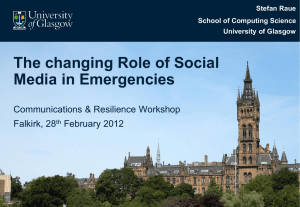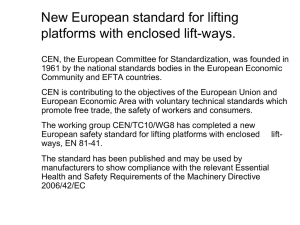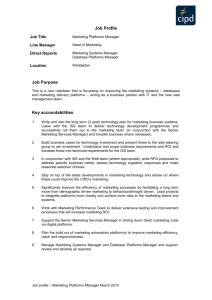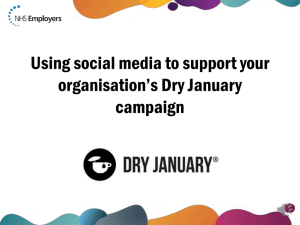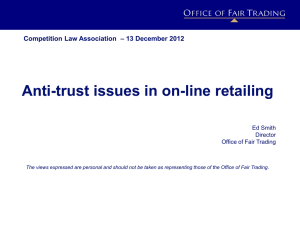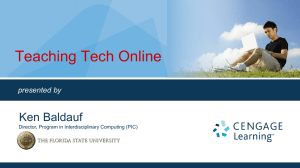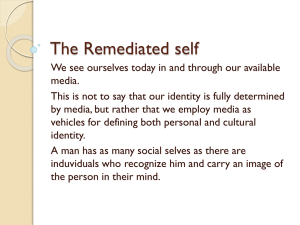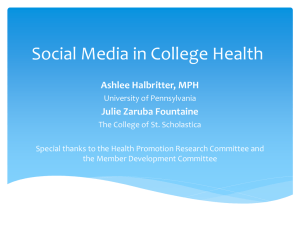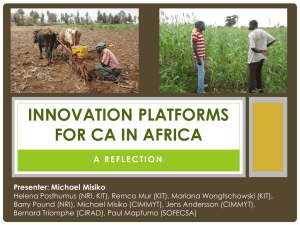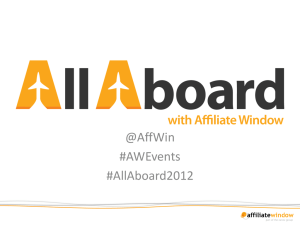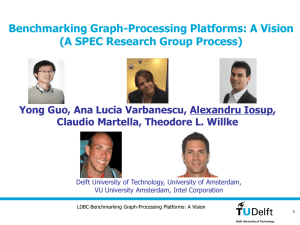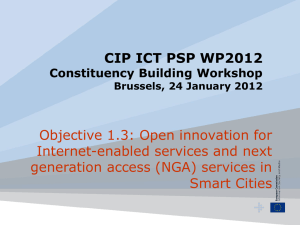New - Pew Internet & American Life Project
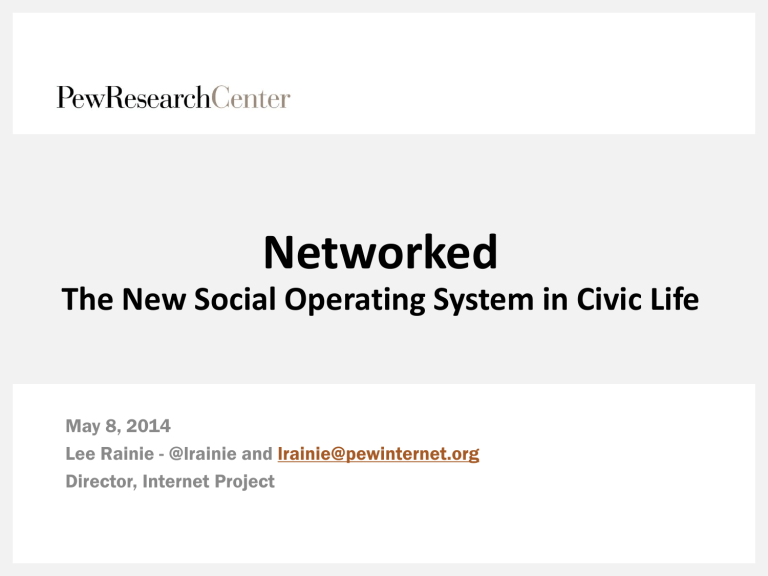
Networked
The New Social Operating System in Civic Life
May 8, 2014
Lee Rainie - @lrainie and lrainie@pewinternet.org
Director, Internet Project
January 25, 2013
Chelsea Welch Alois Bell
r/atheism
“My mistake sir, I’m sure Jesus will pay for my rent and groceries”
http://nodexlgraphgallery.org/Pages/Graph.aspx?graphID=2701
Top URLs in Tweet in Entire Graph: http://guardiancomment.tumblr.com/post/42024491123/chelsea-welch-the-us-waitresswho-was-fired-after http://www.guardian.co.uk/p/3dfqt/tw http://www.guardian.co.uk/commentisfree/2013/feb/01/fired-applebees-waitress-needstips http://www.tumblr.com/ZyqxEwd8sjXp http://www.guardian.co.uk/p/3dfqt http://www.dailydot.com/news/applebees-pastor-tip-waitress-facebook / http://neil-gaiman.tumblr.com/post/42074466808/guardiancomment-chelsea-welch-theus-waitress http://m.guardian.co.uk/commentisfree/2013/feb/01/fired-applebees-waitress-needs-tips http://www.wptv.com/dpp/news/local_news/water_cooler/chelsea-welch-applebeeswaitress-fired-alois-bell-pastor-complains-about-reddit-receipt-photo http://www.change.org/petitions/applebee-s-and-truth-in-the-word-deliverance-ministriesgive-chelsea-welch-her-job-back-and-fire-pastor-alois-bell http://nodexlgraphgallery.org/Pages/Graph.aspx?graphID=2701
News in the networked age
Impact on civic debate Impact on news ecosystem
Spiritual precepts and atheism
Vigilantism
Privacy rights, publicity rights, and collapsed contexts
Minimum wage policies
& employment practices
Corporate social media policies
New news venues
New news initiators
New gatekeepers, influencers, content drivers well beyond the locale of the news
New pathways to consumers
New role for “people formerly known as the audience”
(Jeff Rosen)
New ways to keep the story moving
Civic life is networked life with network information created and shared by networked organizations
New social and civic reality:
Networked Individualism
The move from tight groups to loose networks
Personal networks are…
Increasingly important – awareness, trust
Differently composed – segmented, layered
More personal liberation & more work
But it is not just technological story
Other drivers are changes in …
Transportation & living patterns
Identity structures (including in politics, religion)
Family life
Business structures & labor shifts
TECHNOLOGY PUSHES THE MOVE
TO NETWORKED INDIVIDUALISM
INTO OVERDRIVE
First: Internet – 1995-2014 http://bit.ly/1dE8jFV
First: Broadband – 2000-2013
Dial-up Broadband
100%
80%
60%
40%
3%
70%
20%
0%
June
2000
April
2001
March
2002
March
2003
April
2004
March
2005
March
2006
March
2007 http://bit.ly/N8OznH
April
2008
April
2009
May
2010
Aug
2011
April
2012
May
2013
Second: Mobile connectivity – Cell phones http://bit.ly/1dE8jFV 21
Second: Mobile connectivity - Smartphones http://bit.ly/1dE8jFV 22
Second: Mobile connectivity – Tablets
80%
60%
40%
20%
50%
42%
32%
0%
2010 2011 2012 2013 http://www.pewinternet.org/2014/01/16/e-reading-rises-as-device-ownership-jumps/
Have either one
Tablet owners
E-reader owners
23
100%
80%
60%
Third: Social networking/media - 61% of all adults
18-29 30-49 50-64 65+
% of internet users
89%
78%
60%
43%
40%
20%
9% 7%
0%
6%
1%
2005 2006 2007 2008 2009 2010 2011 2012 2013
The Landscape of Social Media Users
(among adults)
% of internet users who….
The service is especially appealing to
Use Any Social
Networking Site
Use Facebook
Use Google+
72%
71%
31%
Adults ages 18-29, women
Use Pinterest
Use Twitter
Use Instagram
Use Tumblr
22%
21%
18%
17%
6%
Women, adults ages 18-29
Higher educated
Adults ages 30-64, higher income, higher educated
Women, adults under 50, whites, those with some college education
Adults ages 18-29, African-Americans, urban residents
Adults ages 18-29, African-Americans,
Latinos, women, urban residents
Adults ages 18-29 reddit 6% Men ages 18-29
The social media platforms arts orgs use
YouTube
Flickr
Wikipedia
Vimeo
Foursquare
Yelp
Google+
Tumblr
Network for Good iTunes
MySpace
Eventbrite
Kickstarter
JustGive uStream
Jume
Delicious
Slideshare
Ning
Digg
0%
99%
74%
67%
2%
1%
1%
1%
7%
6%
4%
3%
2%
31%
27%
23%
20%
19%
17%
13%
13%
12%
11%
9%
38%
Source: Pew Research Center’s Internet & American
Life Project Arts Organizations Survey. Conducted between May 30-July 20, 2012. N for respondents who answered this question=1,202.
20% 40% 60% 80% 100%
Number of platforms
17 platforms
16 platforms
15 platforms
14 platforms
13 platforms
12 platforms
11 platforms
10 platforms
9 platforms
8 platforms
7 platforms
6 platforms
5 platforms
4 platforms
3 platforms
2 platforms
1 platform
1
2
3
10
9
16
31
36
48
70
95
102
The majority of arts organizations that use social media maintain profiles on at least four different social media sites.
132
141
153
138
148
Big Change 1: It has networked people and affected key behaviors
Attention allocation
• Streams:
Continuous partial attention to screens
• Stacks:
Immersion in deep dives
• Snacks: Infodosing in free moments
Identity shifts
‘Birth realities’ are joined by ‘my tribes’
Environment awareness & scrutiny
Transparency grows as “trust” benchmark
Surveillance – powerful watch the ordinary
Sousveillance – ordinary watch powerful
Coveillance – peers check up on peers
Big change 2: It has networked information
Pervasively generated
Pervasively consumed
Personal via new filters
Participatory / social
Linked
Continually edited
Multi-platformed
Real-time / just-in-time
Timeless / searchable
Given meaning via networks / algorithms
“Third skin”
Big Change 3: It has changed the civic ecosystem
More niches
More topics of discussion
(and different news agendas” thanks to “fifth estate”)
More alliances - paragovernment activities
(“peer progressivism”)
More DIY capabilities
More arguments
More disclosure of all kinds
More people in decisionmaking spaces -- “wisdom of crowds” and the filtering capacity of algorithms exert influence
More evidence of everything humans do:
Love, Hate
Altruism, Stupidity
Dis- + En-gagement
What really isn’t so … in networked life
Facebook makes you lonely
What really isn’t so – 1
What really isn’t so – 2
People live in echo chambers in their social networks and information practices
What really isn’t so – 3
People’s views about privacy are binary and immutable
Next revolutions
More tech power - bandwidth, computing power, apps
Better Web + better apps -- expanded search into video and audio plus the “semantic web” plus analytics
New interfaces – haptic, voice, collaborative, brain
Internet of Things: Smart appliances and systems (tech becomes less visible)
3D and 4D printing
